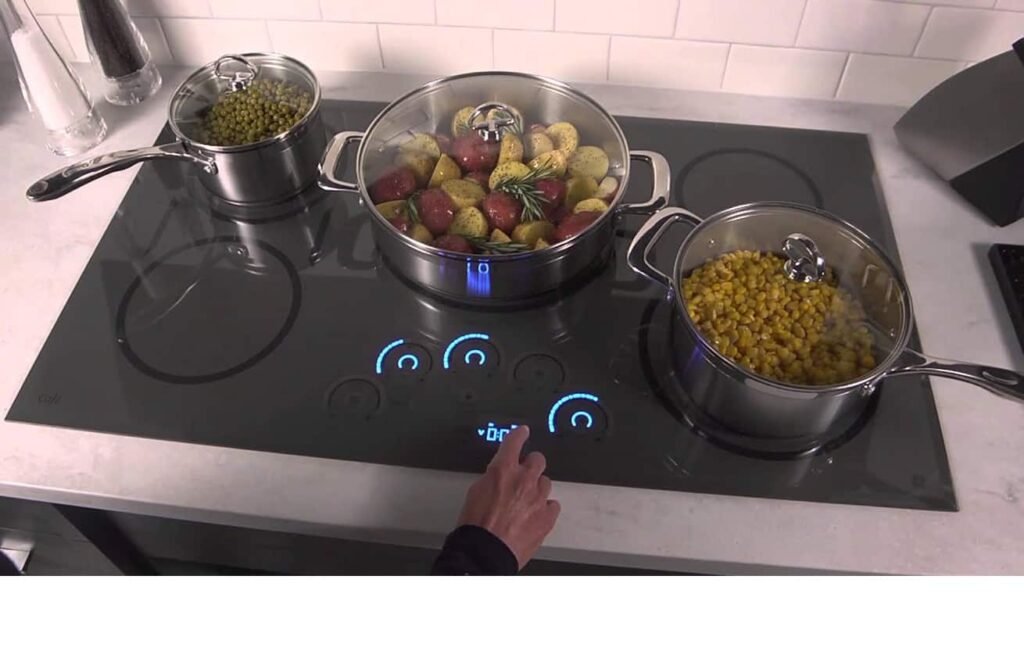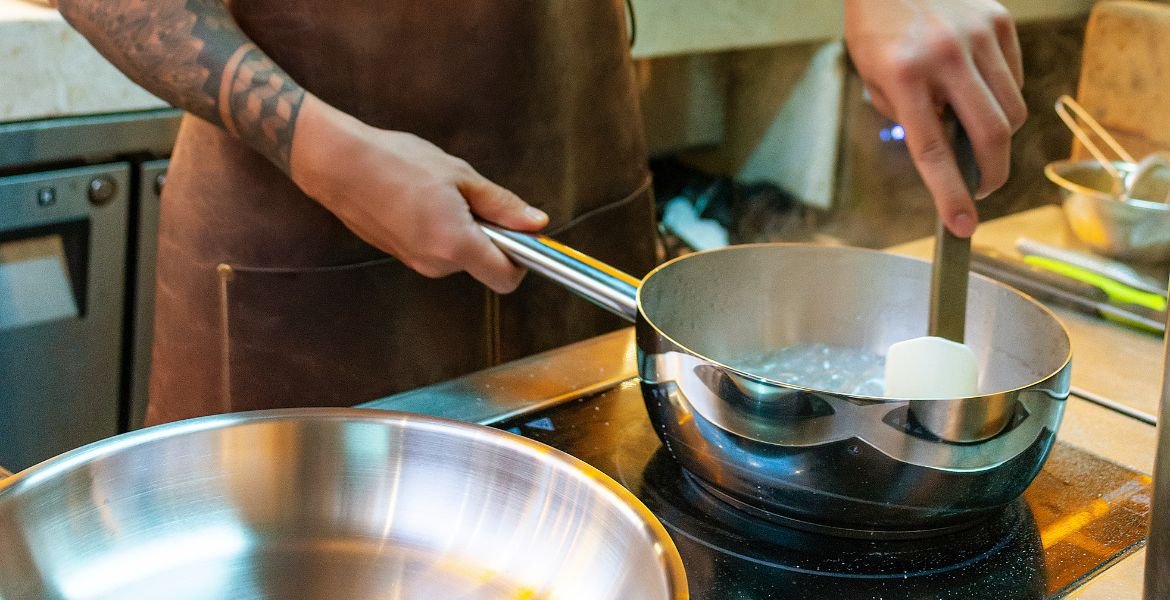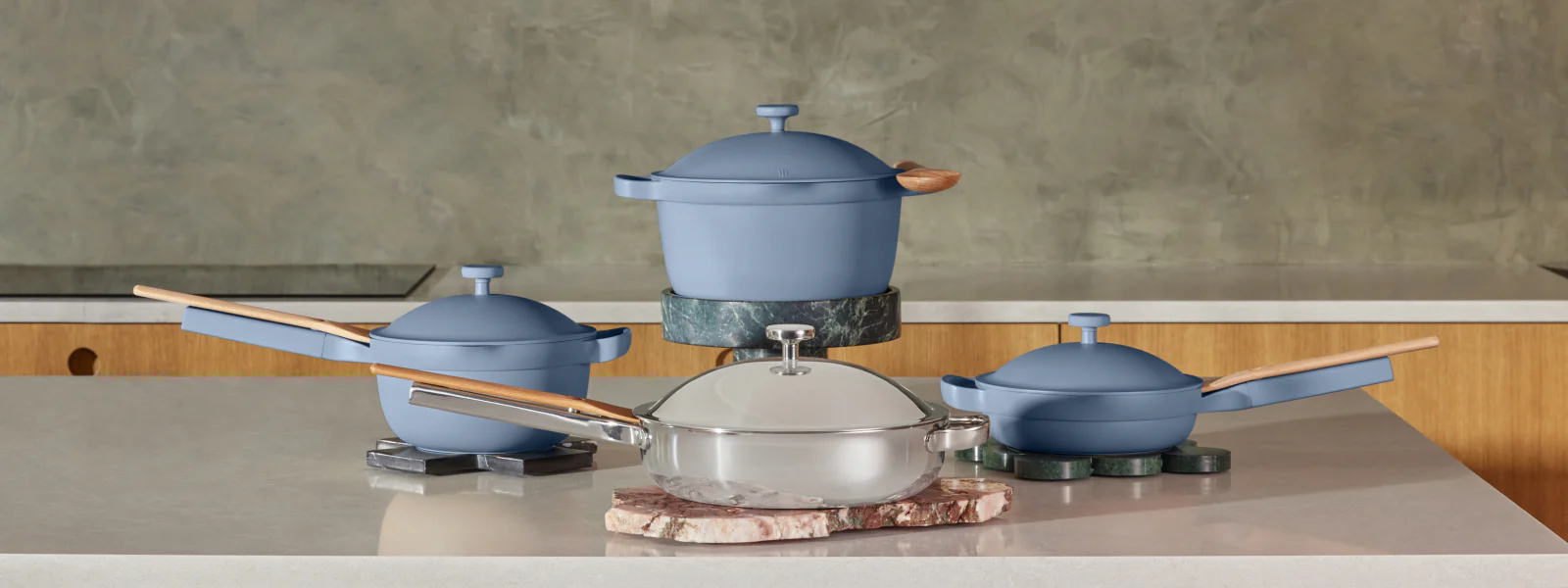Induction cooking has emerged as a popular alternative to traditional gas and electric stoves. Known for its speed, efficiency, and precise control, induction cooking uses a cutting-edge technology that has caught the attention of both home cooks and professional chefs. But what is the science behind it, and is it really worth the investment? In this article, we will explore how induction cooking works, its benefits, and whether it’s a good choice for your kitchen.
How Induction Cooking Works
At its core, induction cooking works on the principle of electromagnetic energy. Unlike traditional stoves that rely on heating elements or flames to transfer heat to cookware, induction cooktops use electromagnetic fields to directly heat the cooking pot or pan. Here’s how the process works:
- Electromagnetic Field: When you turn on an induction cooktop, an electric current passes through a coil of copper wire located beneath the cooktop’s surface. This generates a magnetic field.
- Induction Heating: This magnetic field induces an electric current in the ferrous (magnetic) cookware placed on top of the cooktop. The resistance to this current in the cookware generates heat, which is then transferred directly to the food.
- Precise Control: The heat is generated within the pan itself, meaning the cooktop remains relatively cool to the touch. The heat can be adjusted instantly, allowing for precise control over the cooking temperature.
In simple terms, induction cooking doesn’t heat the cooking surface; it heats the pot, making it faster and more efficient than traditional methods.
Benefits of Induction Cooking
Induction cooking offers several advantages over conventional gas or electric stoves, making it an attractive option for modern kitchens. Let’s take a closer look at these benefits:
1. Speed and Efficiency
Induction cooking is known for its speed. Since heat is generated directly in the cookware, there’s less heat loss, meaning the energy is used more efficiently. This results in faster cooking times compared to gas or electric stoves. For example, boiling water with induction is often faster than boiling it on a gas or electric stove.
- Efficiency: Induction cooktops are highly energy-efficient, converting nearly 90% of the energy into heat, compared to around 70% for gas stoves and even less for electric ones.

2. Precise Temperature Control
One of the key benefits of induction cooking is its ability to provide precise temperature control. With gas and electric stoves, adjusting the heat can take some time, and the temperature can fluctuate. Induction cooktops allow for immediate and consistent temperature changes, giving you more control over your cooking.
- Tip: This level of precision makes induction cooking ideal for tasks like simmering sauces or melting chocolate, where maintaining a consistent, low temperature is crucial.
3. Safer Cooking Experience
Induction cooking is generally safer than gas or electric stoves, particularly for families with young children or pets. Since induction cooktops use electromagnetic fields to heat cookware directly, the cooktop itself remains relatively cool to the touch. Only the area beneath the cookware gets hot, reducing the risk of burns. Additionally, most induction cooktops have automatic shut-off features that turn off the heat if no pan is detected, providing added safety.
- No Open Flames: With gas cooking, an open flame can pose a risk of burns or accidental fires. Induction cooking, on the other hand, eliminates this hazard.
4. Easy to Clean
Induction cooktops are typically easier to clean than gas or electric stoves. Since the cooktop surface doesn’t get as hot as traditional stoves, spilled food is less likely to burn onto the surface. Instead of cleaning up burnt residue, you only need to wipe the cooktop with a damp cloth after cooking.
- No Messy Grates: Gas stoves require regular cleaning of grates and burners, which can be time-consuming. Induction cooktops only require a simple wipe-down to keep them looking clean and new.
5. Energy Savings
Induction cooking is more energy-efficient than both gas and electric cooking methods. As mentioned earlier, induction cooktops convert around 90% of the energy into heat, meaning less energy is wasted. This makes it a more eco-friendly option, especially if you’re trying to reduce your energy consumption.
- Lower Utility Bills: Because induction cooking uses less energy, it can help lower your overall utility bills, especially in households that cook frequently.
Potential Drawbacks of Induction Cooking
While induction cooking has many advantages, it’s not without its drawbacks. Before deciding whether to invest in an induction cooktop, it’s important to consider these potential downsides:
1. Cookware Compatibility
Induction cooktops require cookware that is ferrous (magnetic). This means that not all pots and pans will work on an induction stove. Cookware made from aluminum, copper, or glass, for example, will not work unless it has a magnetic base. While some newer induction cooktops come with a “cookware compatibility” feature that shows whether your pots and pans will work, it’s something to keep in mind when upgrading to induction cooking.
- Solution: You can purchase specific induction-compatible cookware, but this may involve an additional investment if you already have a collection of non-magnetic cookware.
2. Higher Initial Cost
Induction cooktops can be more expensive than traditional gas or electric stoves. The technology behind induction cooking involves specialized components like electromagnetic coils and sensors, which increase the cost. While prices are coming down, the initial investment may still be higher than some other cooking options.
- Tip: If you plan to cook frequently or upgrade your kitchen, the long-term benefits of efficiency and safety may outweigh the higher upfront cost.
3. Noise
Some users report that induction cooktops can produce a faint buzzing or humming sound when in use, especially at higher power levels. While this noise is generally not loud or intrusive, it may be bothersome to some people.
- Solution: Choose an induction cooktop known for quieter operation or use it on lower power settings if noise is an issue.
Is Induction Cooking Worth the Investment?
Induction cooking offers numerous benefits, including energy efficiency, speed, safety, and ease of use. While there are some downsides, such as the need for compatible cookware and a higher initial cost, the long-term advantages can make it a worthwhile investment for many households.
For those who cook regularly and are looking for a more efficient, safer, and easier-to-clean cooking method, induction cooking can be a game-changer. However, if you’re just a casual cook or have a limited budget, you may want to weigh the benefits against the costs before making the switch.
Ultimately, whether induction cooking is worth the investment depends on your cooking habits, budget, and willingness to embrace new technology.











